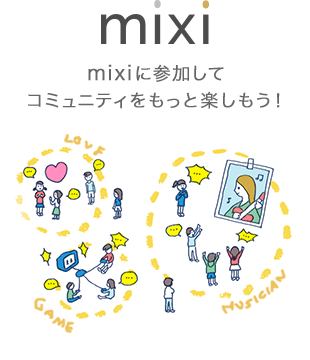開催終了ワールドワークのご案内
詳細
2008年11月27日 23:45 更新
こんばんは。ワークショップセンターJAPANの坂本と申します。
今回で5回目になる「京都ワールドワーク」のご案内にあがりました。
関心のある方のご参加をお待ちしております!!
-----------------------------------------------------
第5回ワールドワーク京都
「多様性へのチャレンジ、世界の中の日本、日本の中の世界」
今、日本には200万人以上の外国人が居住しておられるのを知っていますか?
近年になって、日本に留学している学生はじめ、海外から出稼ぎにきている労働者まで、
たくさんの方が、この日本で生活しておられます。
日本人の中で、ある人は外国から来られた方と、生活、仕事、恋愛で関係を持ち、
ある人はまったく関係をもっておられないでしょう。
日本という名の国は、はるかな昔に、中国、東南アジア、韓国、南西諸島
からの移民が渡海され、この列島にたどりつき、先住民族であるアイヌの人たちと出会い、
戦い、いろいろなことやモノを周縁化しながら構成されている国です。
日本の実態は、すでに多様性のある環境になっていながら、
その自覚がともなっているといえるでしょうか?
日本は単一民族ではないと言われているのに、単一民族であると言葉にする人が、
繰り返しあらわれたり、さらには、第二次世界大戦を前後し日本に居住するようになった
在日コリアンの方たちが抱えておられる未完了な問題もあります。
現代の日本で、何が未完了な出来事として起こっているのでしょうか?
在日コリアン、コリアンジャパニーズ、ニューカマーと呼ばれる南米から日本にきておられる方、
海外からの留学生の方、外国で生まれて日本で生活している方、関心のある日本人を歓迎します。
このワークは、深層民主主義という原則のもとに、この場に集うひとり
ひとりの存在を大切にしながら、その場にある大きな声も小さな声もすべての声を聞き、
いままで起こらなかった対話や、完了しなかったためにくり返されるできごとに、
向きあっていくワークです。
あなたの参加をお待ちしています。
――――――――――――――――――――――――
「日時」:2008年12月12日(金)19:00〜
12月14日(日)17:00まで
「ファシリテーター」: 桐山岳大 ワークショップセンターJAPAN
「会場」:乾窓院(京都市上京区下竪町164)
*お申込み後、詳しい地図をご案内致します。
「参加費」:
☆12/ 12〜14日(金・土・日)参加の方
一般:28,000円 早割 25,000円(11月30日迄)
学生:18,000円
☆12/13〜14日(土・日)参加の方
一般:24,000円 学生:15,000円
12日、13日の宿泊:7000円、13日朝食、夕食、14日の朝食込み
13日のみ宿泊:5000円、13日夕食、14日の朝食込み
(食事は皆で自炊いたします。)
(寝袋持参は500円引き)
〈参加費の支払いについて〉
下記申込み先に必要事項をご記入下さい。
参加申込み後、1週間以内に下記振込み先にてお願いします。
宿泊をご希望の方は、宿泊費もご一緒にお願いします。
振込み手数料はご負担願います。
入金後キャンセルされた場合、手数料はご負担願います。
(振込先)
三井住友銀行 ひばりケ丘支店 普通 6446309 ミエダツヨシ
<スカラーシップ>
参加費を若干免除するために、ワークの会場での作業と金銭を交換する用意が、若干
名に対してあります。
必要とされる方は、11月30日(日)までにお問い合わせください。
【締 切】12月10日 完全予約制
※ご参加の申し込みは、宿泊先の予約の関係上、12月10日までにお願いします。
それ以降になりますと、お申し込み頂けない場合がありますのでご了承下さい。
<宿泊>乾窓院にて男女に分かれて相部屋となります。
個室を希望の方は、各自手配して下さい。通いでの参加も可能です。
<ワールドワークとは?>
ユング心理学から枝分かれしたプロセス指向心理学から、発展しているグループワークで、
個人の問題から、地域、社会、歴史、民族の問題まで対応するダイナミックなワーク。
<方法>
ファシリテーター(進行役)をおき、集まった人たちが、とりくんでみたい問題や関心
事というトピックを出し合い、グループがもっとも関心をもったトピックからで問題に取り組んでいく。
通常の会議とは違い、グループに起こるあらゆる非言語的なこと、 感情的なこと、共
時的な出来事を、フアシリテータはグループに自覚を促し、問題の核心に切り込んで
いくワーク。
<深層民主主義>
プロセス指向心理学から始まった概念。主流派が力を持ち、非主流派がそれに異論を
もちながら従っていくのではなく、場にあるすべての声を大切に合意形成をつくろうとする態度。
命のあるものも、命のないものも、力のあるものも、力のないものも、同等に存在を受け入れる。
□■□お問い合わせ・お申し込み方法□■□
主催<<ワークショップセンター JAPAN>>
氏名(フリガナ)、電話番号、メールアドレスを明記の上、
下記まで電子メールでお申し込み下さい。
メール申込みの時にタイトルに「京都ワールドワーク」とご記入下さい。
お申し込み後に詳しい参加案内をお送りします。
3日たっても返事がなければ、電話にてお問い合わせください。
(メール)info@workshopcenterjapan.org
(携帯)三枝 090-3672-6327
http://
〜〜〜〜〜〜〜〜〜〜〜〜〜〜〜〜〜〜〜〜〜〜〜〜〜〜〜〜〜〜〜〜〜〜
World Work Kyoto
The Diversity Challenge. Japan in the world; the world in Japan
Did you know that there are two million foreign people living in Japan? In recent years, there have been many people coming to study or work in Japan. Most Japanese people now have something to do with foreign people, whether in the context of work, friendship or love.
Japan has never been a nation made up of indigenous people alone. Since its earliest history, Japan was made up of people from China, South East Asia and Korea, as well as indigenous Ainu people and others. The reality is that Japan is a country with great diversity. Most Japanese people however seem not to be aware of this. Despite the fact that the Japanese population is not homogenous, there are still people who occasionally claim, for political reasons, it is.
Another issue concerns Korean people living in Japan. During World War Two, the Japanese government brought many Korean people to Japan to work. Some of those people, known as “zainichi”, are still living here in Japan and in many ways have assimilated into Japanese society. Their presence is not openly discussed among Japanese people, yet they face discrimination for being Korean. This is one example of an issue from Japan’s past which continues to cause problems today. What other issues of diversity still need to be worked on?
We welcome everybody to come to this weekend: zainichi Korean, Korean Japanese, newly arrived migrants, people from South America, foreign students, Japanese people who have lived overseas and all Japanese people who are interested in issues relating to diversity.
This conflict transformation work is based on the principle of “deep democracy”, which is about appreciating all voices, big and small, and all forms of participation from every individual in the group. Together we will create a dialogue that has not been held before.
We are looking forward to you being part of this historic event.
WHEN: 12.Dec.2008 19:00〜14.Dec.2008 17:00
WHERE: Kensouin (164 Simogatacyou Kamigyo-ku Kyoto)
Facilitator: Takeo Kiriyama (Certified Process Worker, Workshop Center Japan)
When you book, we can give you more detailed information.
Fee: 28,000 yen
*Early bird 25,000 yen Deadline 30th Nov.
Japanese Student18000 yen
Foreign student 5,000yen
13〜14 Dec
Fee: 24,000 yen
Japanese Student15,000 yen
Foreign student 5,000yen
Accommodation Fee:
2 nights from 12th Dec (including breakfast on 13th & 14th ; dinner on 14th ) 7000 yen
1 night from 13th Dec (including dinner on 13th, breakfast on 14th) 5000 yen
If you bring your sleeping bag, we can give you a discount of 500 yen
Deadline for registration: 10th Dec
What is world work?
World work is conflict transformation group work based on Process-oriented Psychology, which comes from Jungian psychology. This work can be applied to individual psychological issues, as well as to social, political and historical issues affecting whole communities.
References:
Sitting in the Fire, by Arnold Mindell, 2001
Deep Democracy in Open Forums, by Arnold Mindell, 2005
The Leader as Martial Artist, by Arnold Mindell,
Procedure:
Facilitators are present to help the group discuss the topics they most want to discuss. The process is different from most meetings or conferences, because in addition to taking into account verbal contributions, the Process Work facilitator is also trained to be aware of non verbal communication, emotional issues and “synchronicity” in the Jungian sense. The facilitator encourages the group to be aware of these issues as well.
World Work Steps:
1) Be aware of the atmosphere of the group.
2) The facilitator helps the group to choose a topic for discussion.
3) The person who suggested the topic that is chosen begins to talk.
4) Free dialogue, facilitated by the facilitator.
5) The facilitator mediates conflict as it arises and helps the group to get to the essence of the issues raised.
Deep Democracy:
This principle comes from Process-Oriented Psychology. Based on the awareness that minority groups are usually marginalized in society, the facilitator trained in this method works to bring out those voices that are usually silenced.
Contact : WORKSHOPCENTER−JAPAN
info@workshopcenterjapan.org
Please provide your name, phone number & email address in an email entitled “Kyoto World Work” and you will be provided with more detailed information about this event.
今回で5回目になる「京都ワールドワーク」のご案内にあがりました。
関心のある方のご参加をお待ちしております!!
-----------------------------------------------------
第5回ワールドワーク京都
「多様性へのチャレンジ、世界の中の日本、日本の中の世界」
今、日本には200万人以上の外国人が居住しておられるのを知っていますか?
近年になって、日本に留学している学生はじめ、海外から出稼ぎにきている労働者まで、
たくさんの方が、この日本で生活しておられます。
日本人の中で、ある人は外国から来られた方と、生活、仕事、恋愛で関係を持ち、
ある人はまったく関係をもっておられないでしょう。
日本という名の国は、はるかな昔に、中国、東南アジア、韓国、南西諸島
からの移民が渡海され、この列島にたどりつき、先住民族であるアイヌの人たちと出会い、
戦い、いろいろなことやモノを周縁化しながら構成されている国です。
日本の実態は、すでに多様性のある環境になっていながら、
その自覚がともなっているといえるでしょうか?
日本は単一民族ではないと言われているのに、単一民族であると言葉にする人が、
繰り返しあらわれたり、さらには、第二次世界大戦を前後し日本に居住するようになった
在日コリアンの方たちが抱えておられる未完了な問題もあります。
現代の日本で、何が未完了な出来事として起こっているのでしょうか?
在日コリアン、コリアンジャパニーズ、ニューカマーと呼ばれる南米から日本にきておられる方、
海外からの留学生の方、外国で生まれて日本で生活している方、関心のある日本人を歓迎します。
このワークは、深層民主主義という原則のもとに、この場に集うひとり
ひとりの存在を大切にしながら、その場にある大きな声も小さな声もすべての声を聞き、
いままで起こらなかった対話や、完了しなかったためにくり返されるできごとに、
向きあっていくワークです。
あなたの参加をお待ちしています。
――――――――――――――――――――――――
「日時」:2008年12月12日(金)19:00〜
12月14日(日)17:00まで
「ファシリテーター」: 桐山岳大 ワークショップセンターJAPAN
「会場」:乾窓院(京都市上京区下竪町164)
*お申込み後、詳しい地図をご案内致します。
「参加費」:
☆12/ 12〜14日(金・土・日)参加の方
一般:28,000円 早割 25,000円(11月30日迄)
学生:18,000円
☆12/13〜14日(土・日)参加の方
一般:24,000円 学生:15,000円
12日、13日の宿泊:7000円、13日朝食、夕食、14日の朝食込み
13日のみ宿泊:5000円、13日夕食、14日の朝食込み
(食事は皆で自炊いたします。)
(寝袋持参は500円引き)
〈参加費の支払いについて〉
下記申込み先に必要事項をご記入下さい。
参加申込み後、1週間以内に下記振込み先にてお願いします。
宿泊をご希望の方は、宿泊費もご一緒にお願いします。
振込み手数料はご負担願います。
入金後キャンセルされた場合、手数料はご負担願います。
(振込先)
三井住友銀行 ひばりケ丘支店 普通 6446309 ミエダツヨシ
<スカラーシップ>
参加費を若干免除するために、ワークの会場での作業と金銭を交換する用意が、若干
名に対してあります。
必要とされる方は、11月30日(日)までにお問い合わせください。
【締 切】12月10日 完全予約制
※ご参加の申し込みは、宿泊先の予約の関係上、12月10日までにお願いします。
それ以降になりますと、お申し込み頂けない場合がありますのでご了承下さい。
<宿泊>乾窓院にて男女に分かれて相部屋となります。
個室を希望の方は、各自手配して下さい。通いでの参加も可能です。
<ワールドワークとは?>
ユング心理学から枝分かれしたプロセス指向心理学から、発展しているグループワークで、
個人の問題から、地域、社会、歴史、民族の問題まで対応するダイナミックなワーク。
<方法>
ファシリテーター(進行役)をおき、集まった人たちが、とりくんでみたい問題や関心
事というトピックを出し合い、グループがもっとも関心をもったトピックからで問題に取り組んでいく。
通常の会議とは違い、グループに起こるあらゆる非言語的なこと、 感情的なこと、共
時的な出来事を、フアシリテータはグループに自覚を促し、問題の核心に切り込んで
いくワーク。
<深層民主主義>
プロセス指向心理学から始まった概念。主流派が力を持ち、非主流派がそれに異論を
もちながら従っていくのではなく、場にあるすべての声を大切に合意形成をつくろうとする態度。
命のあるものも、命のないものも、力のあるものも、力のないものも、同等に存在を受け入れる。
□■□お問い合わせ・お申し込み方法□■□
主催<<ワークショップセンター JAPAN>>
氏名(フリガナ)、電話番号、メールアドレスを明記の上、
下記まで電子メールでお申し込み下さい。
メール申込みの時にタイトルに「京都ワールドワーク」とご記入下さい。
お申し込み後に詳しい参加案内をお送りします。
3日たっても返事がなければ、電話にてお問い合わせください。
(メール)info@workshopcenterjapan.org
(携帯)三枝 090-3672-6327
http://
〜〜〜〜〜〜〜〜〜〜〜〜〜〜〜〜〜〜〜〜〜〜〜〜〜〜〜〜〜〜〜〜〜〜
World Work Kyoto
The Diversity Challenge. Japan in the world; the world in Japan
Did you know that there are two million foreign people living in Japan? In recent years, there have been many people coming to study or work in Japan. Most Japanese people now have something to do with foreign people, whether in the context of work, friendship or love.
Japan has never been a nation made up of indigenous people alone. Since its earliest history, Japan was made up of people from China, South East Asia and Korea, as well as indigenous Ainu people and others. The reality is that Japan is a country with great diversity. Most Japanese people however seem not to be aware of this. Despite the fact that the Japanese population is not homogenous, there are still people who occasionally claim, for political reasons, it is.
Another issue concerns Korean people living in Japan. During World War Two, the Japanese government brought many Korean people to Japan to work. Some of those people, known as “zainichi”, are still living here in Japan and in many ways have assimilated into Japanese society. Their presence is not openly discussed among Japanese people, yet they face discrimination for being Korean. This is one example of an issue from Japan’s past which continues to cause problems today. What other issues of diversity still need to be worked on?
We welcome everybody to come to this weekend: zainichi Korean, Korean Japanese, newly arrived migrants, people from South America, foreign students, Japanese people who have lived overseas and all Japanese people who are interested in issues relating to diversity.
This conflict transformation work is based on the principle of “deep democracy”, which is about appreciating all voices, big and small, and all forms of participation from every individual in the group. Together we will create a dialogue that has not been held before.
We are looking forward to you being part of this historic event.
WHEN: 12.Dec.2008 19:00〜14.Dec.2008 17:00
WHERE: Kensouin (164 Simogatacyou Kamigyo-ku Kyoto)
Facilitator: Takeo Kiriyama (Certified Process Worker, Workshop Center Japan)
When you book, we can give you more detailed information.
Fee: 28,000 yen
*Early bird 25,000 yen Deadline 30th Nov.
Japanese Student18000 yen
Foreign student 5,000yen
13〜14 Dec
Fee: 24,000 yen
Japanese Student15,000 yen
Foreign student 5,000yen
Accommodation Fee:
2 nights from 12th Dec (including breakfast on 13th & 14th ; dinner on 14th ) 7000 yen
1 night from 13th Dec (including dinner on 13th, breakfast on 14th) 5000 yen
If you bring your sleeping bag, we can give you a discount of 500 yen
Deadline for registration: 10th Dec
What is world work?
World work is conflict transformation group work based on Process-oriented Psychology, which comes from Jungian psychology. This work can be applied to individual psychological issues, as well as to social, political and historical issues affecting whole communities.
References:
Sitting in the Fire, by Arnold Mindell, 2001
Deep Democracy in Open Forums, by Arnold Mindell, 2005
The Leader as Martial Artist, by Arnold Mindell,
Procedure:
Facilitators are present to help the group discuss the topics they most want to discuss. The process is different from most meetings or conferences, because in addition to taking into account verbal contributions, the Process Work facilitator is also trained to be aware of non verbal communication, emotional issues and “synchronicity” in the Jungian sense. The facilitator encourages the group to be aware of these issues as well.
World Work Steps:
1) Be aware of the atmosphere of the group.
2) The facilitator helps the group to choose a topic for discussion.
3) The person who suggested the topic that is chosen begins to talk.
4) Free dialogue, facilitated by the facilitator.
5) The facilitator mediates conflict as it arises and helps the group to get to the essence of the issues raised.
Deep Democracy:
This principle comes from Process-Oriented Psychology. Based on the awareness that minority groups are usually marginalized in society, the facilitator trained in this method works to bring out those voices that are usually silenced.
Contact : WORKSHOPCENTER−JAPAN
info@workshopcenterjapan.org
Please provide your name, phone number & email address in an email entitled “Kyoto World Work” and you will be provided with more detailed information about this event.
困ったときには


